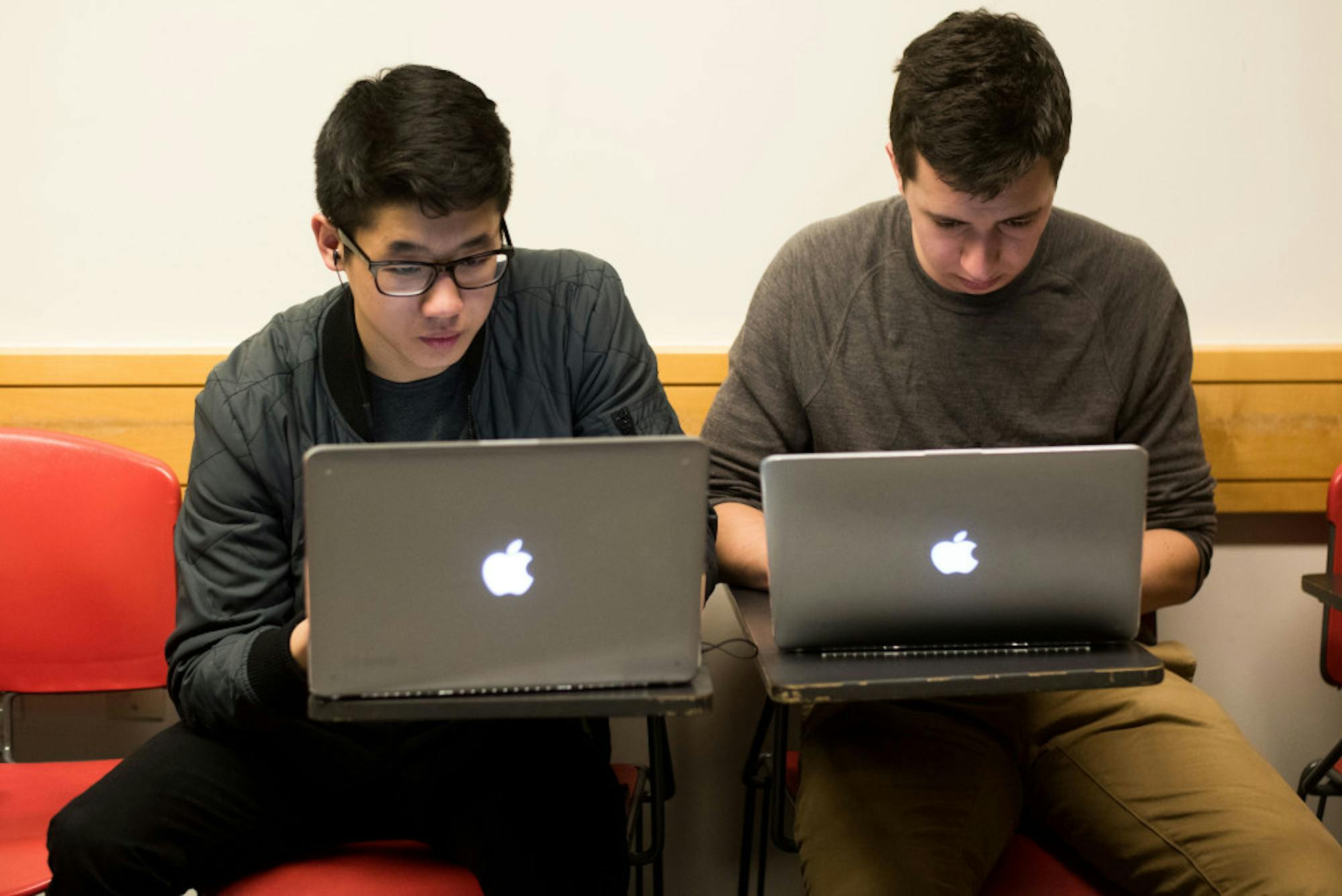Earlier this month, students from several universities competed in ID Hack, a hackathon that focused on international development. Of the hundreds of students who participated, eight teams won awards for their projects, which explored solutions for economic and social challenges in developing countries.
According to organizer Sam Purcell, there were 284 attendees with winners in several different categories.
Students came from a variety of schools including Harvard University, Massachusetts Institute of Technology (MIT), Wellesley College, Brown University, University of Toronto and University of Massachusetts schools, organizer James Downer said.
ID Hack provided contestants with nine projects to choose from, but according to Downer, a senior, many participants arrived with their own ideas that fit into the theme of international development.
“I just thought it was really cool how people were that creative in that narrow of a space when compared to the usual broad hackathon," he said. "People have the motivation to do it themselves. It was just incredibly impressive."
Transparent, an app that takes information from the internet on the Tanzanian government’s budget and converts into an accessible format, won the grand prize, according to the ID Hack website.
The other seven winners were BetterBirth Tracker, Tinder for Peace Corps, Visualizing Tanzania, Reservoir, Rough Radio, MassAware and Walimu Web Application.
According to Purcell, a senior, one of the main goals of the hackathon was to develop apps that can get deployed in the future.
“A lot of times you see apps that get built and never continue at all because there’s no support and there’s not enough interest, but right now we have sponsors who are not only interested but have extremely deep pockets,” he said.
Organizer Morgan Babbs and Purcell described the huge market for development technology in developing countries that often goes unnoticed, which ID Hack is intended to target.
“It’s the rest of the world outside of Silicon Valley, outside of big cities,” Purcell said.
“Everyone's sitting around thinking of apps that we can use every day to track the Joey and that’s fantastic, but you have to keep in mind that the majority of the world needs more pertinent things to development,” Babbs, a senior, added.
Downer was hopeful about the potential impacts of the ID Hack projects.
“We have at our fingertips the cheapest tool for invention that’s ever been available to anyone in the history of the world: The ability to use data from around the world and deploy it around the world,” he said. “If the project that was built here for Tanzania is in anyway deployed, the work that happened on this Hill is now global, and for whatever small purpose, that’s worthwhile.”






